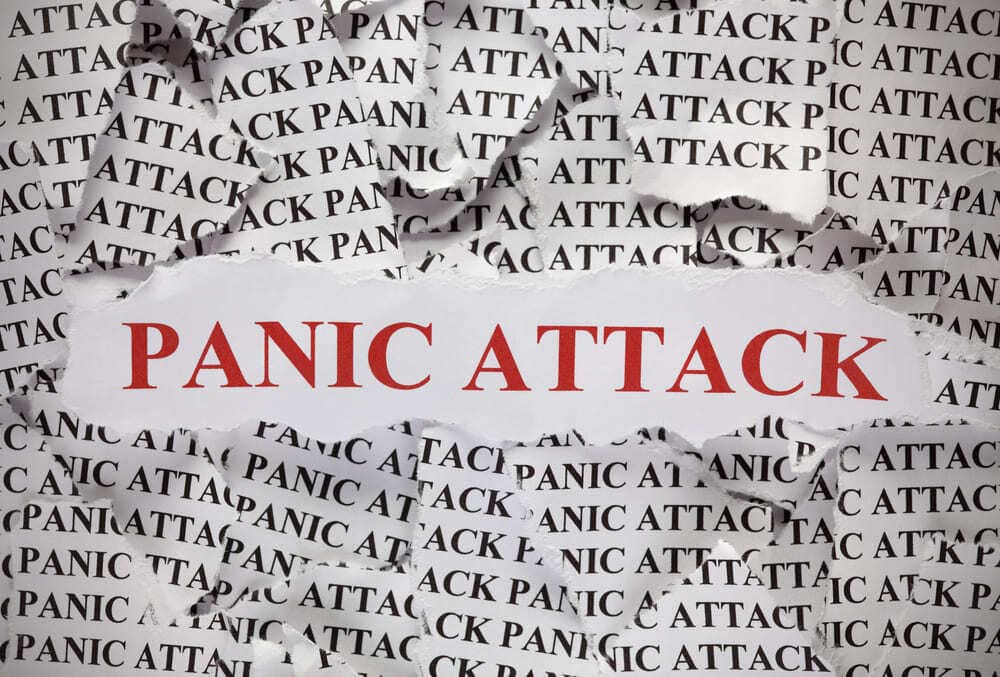Looking for Expert-Level VA Claim Answers?📱Call Us Now! 737-295-2226
This post will explain the process of obtaining a panic disorder VA rating. We’ll walk you through how the VA rates panic disorder, how to get service connected, and what you can do if your panic attacks make it difficult for you to work.
Let’s begin.
Table of Contents

Panic Attacks in Veterans
They come without warning…and often without an obvious trigger. Suddenly, your heart’s pounding so fast your chest feels like it might break open. It’s tough to breathe in, and you feel like something terrible is about to happen—even though you can’t explain it.
Panic attacks are real, and they are extremely common among military veterans. There can be more to them than just controlling emotions and trying to calm down.
The VA recognizes panic attacks as a symptom of a mental health condition that is eligible for VA disability compensation.
You DESERVE a HIGHER VA rating.
Take advantage of a VA Claim Discovery Call with an experienced Team Member. Learn what you’ve been missing so you can FINALLY get the disability rating and compensation you’ve earned for your service.
What’s the Difference Between Panic Attacks and Panic Disorder?
Panic disorder is a type of anxiety that manifests through recurring panic attacks.
Panic attacks (also known as anxiety attacks) look and feel different for every person, but there are some common symptoms.
Most Common Symptoms of Panic Attacks:
- Sense of impending doom or extreme fear
- Rapid heart rate or chest pain
- Sweating
- Shaking
- Tight throat, difficulty breathing
- Hot flashes or chills
- Nausea
- Headache
- Dizziness
- Numbness or tingling
- Feeling detached from your body
Fears, such as fear of driving, medical procedures, or big crowds, may trigger panic attacks. But other times, they don’t seem to be triggered by anything. They may start out of the blue in the middle of the night, waking you from a deep sleep. During the day, they can take over when you least want them to, like at a party or grocery store, leaving you feeling vulnerable and embarrassed.
It’s also common to get into a cycle where the fear of having another panic attack becomes so strong that it triggers an attack. In the throes of this cycle, some people with panic disorder never want to leave the house.

How to Get a Panic Disorder VA Rating
How to Pursue a Panic Disorder VA Rating
- Get a diagnosis. You will need an officially documented diagnosis of panic disorder from a physician. If you received a diagnosis while on active duty, this should show up in your military medical records, hopefully with thorough documentation.
However, many veterans don’t get an official diagnosis while in the military for various reasons. Many veterans do not understand that panic disorder is an actual diagnosis.
Many veterans don’t even realize what’s happening to their bodies when they have panic attacks. They may not seek treatment because they feel embarrassed or fear that having panic disorder in their record could hurt their career.
It’s also possible that your panic disorder was latent and didn’t manifest until after you were out of the military.
If you didn’t get a diagnosis for your panic disorder before leaving military service, you should seek a diagnosis from a private doctor or a VA health care provider.
- Show evidence of a connection between your panic disorder and your military service. For this step, you should be able to describe the scope of your panic disorder. When did your panic attacks start? How severe are they? How frequent are they? How do they affect your ability to complete tasks, perform on the job, and interact with others? Next, you must show how your time in military service, or another service-connected condition, triggered your panic disorder.
- Get a nexus letter. You now have an official diagnosis of panic disorder, and you can show evidence that this disorder and military service are connected. The next step is to get a doctor to verify this connection with a nexus letter. A nexus letter should be thorough, evidence-based, and show a degree of likelihood that your panic disorder is connected to your time in service or to another service-connected condition (e.g., “It is as least as likely as not…”)

Panic Disorder VA Ratings
There are 31 different mental health conditions that the VA considers to be service-connected, and they are all measured on the same scale.
The VA disability ratings below may apply if a person displays some or all of the listed symptoms.
Panic Disorder VA Ratings range from 0%-100%:
0% VA disability rating:
- A mental condition has been formally diagnosed, but symptoms are not severe enough to interfere with occupational and social functioning or require continuous medication.
10% VA disability rating:
- Due to mild or transient symptoms, occupational and social impairment decreases work efficiency and ability to perform occupational tasks only during periods of significant stress or symptoms controlled by continuous medication.
30% VA disability rating:
- Occupational and social impairment with occasional decrease in work efficiency and intermittent periods of inability to perform occupational tasks (although generally functioning satisfactorily, with routine behavior, self-care, and conversation normal) due to such symptoms as:
- Chronic sleep impairment
- Mild memory loss (such as forgetting names, directions, and recent events)
- Suspiciousness
- Depressed mood
- Anxiety
- Panic attacks (weekly or less often)
50% VA disability rating:
- Occupational and social impairment with reduced reliability and productivity due to such symptoms as:
- Flattened affect
- Circumstantial, circumlocutory, or stereotyped speech
- Panic attacks more than once a week
- Difficulty in understanding complex commands
- Impairment of short- and long-term memory (e.g., retention of only highly learned material, forgetting to complete tasks)
- Impaired judgment
- Impaired abstract thinking
- Disturbances of motivation and mood
- Difficulty in establishing and maintaining effective work and social relationships
70% VA disability rating:
- Occupational and social impairment, with deficiencies in most areas, such as work, school, family relations, judgment, thinking, or mood, due to such symptoms as:
- Suicidal ideation
- Obsessional rituals which interfere with routine activities
- Speech intermittently illogical, obscure, or irrelevant
- Near-continuous panic or depression affecting the ability to function independently, appropriately and effectively
- Impaired impulse control (such as unprovoked – irritability with periods of violence)
- Spatial disorientation
- Neglect of personal appearance and hygiene
- Difficulty in adapting to stressful circumstances (including work or a work-like setting)
- Inability to establish and maintain effective relationships
100% VA disability rating:
- Total occupational and social impairment due to such symptoms as:
- Gross impairment in thought processes or communication
- Persistent delusions or hallucinations
- Grossly inappropriate behavior
- Persistent danger of hurting self or others
- Intermittent inability to perform activities of daily living (including maintenance of minimal personal hygiene)
- Disorientation to time or place
- Memory loss for names of close relatives, occupation, or name

Don’t Qualify for 100% Disabled Veteran Benefits but Can’t Work?
What if your symptoms don’t meet the requirements for a 100% rating, but they’re severe enough that you can’t get or keep a job? There’s an option to apply for total disability individual unemployability (TDIU), allowing compensation at the 100% rate.
Final Thoughts
Panic disorder can be distressing and debilitating. It can trigger other problems, such as insomnia. Feelings of panic can make it difficult to turn your brain off at night and fall asleep—or stay asleep. In addition, some people experience nocturnal panic attacks, which wake them up at night and contribute to insomnia.
Agoraphobia is another downstream issue stemming from a panic disorder characterized by an extreme fear of leaving home or entering crowded places. People may be so worried that they may have a panic attack in public that they develop the highly isolating condition of agoraphobia.
If you are experiencing panic disorder (or related issues), know you’re not alone; many military veterans develop mental health conditions such as panic disorder due to their time in service.
The military has created a way for you to receive compensation for this life-altering condition. There is no need for you to carry this burden without help. Contact your doctor and start the process of getting the VA compensation you’re entitled to.
About VA Claims Insider
- VA Claims Insider is a highly rated, veteran-owned and operated business.
- 25,000+ disabled veterans served in our membership programs since 2016.
- Employs 200+ teammates; comprised of 44 veterans as well as military spouses.
- 4.7/5.0 average rating out of 5,000+ total reviews; over 4,000 5-star reviews.




